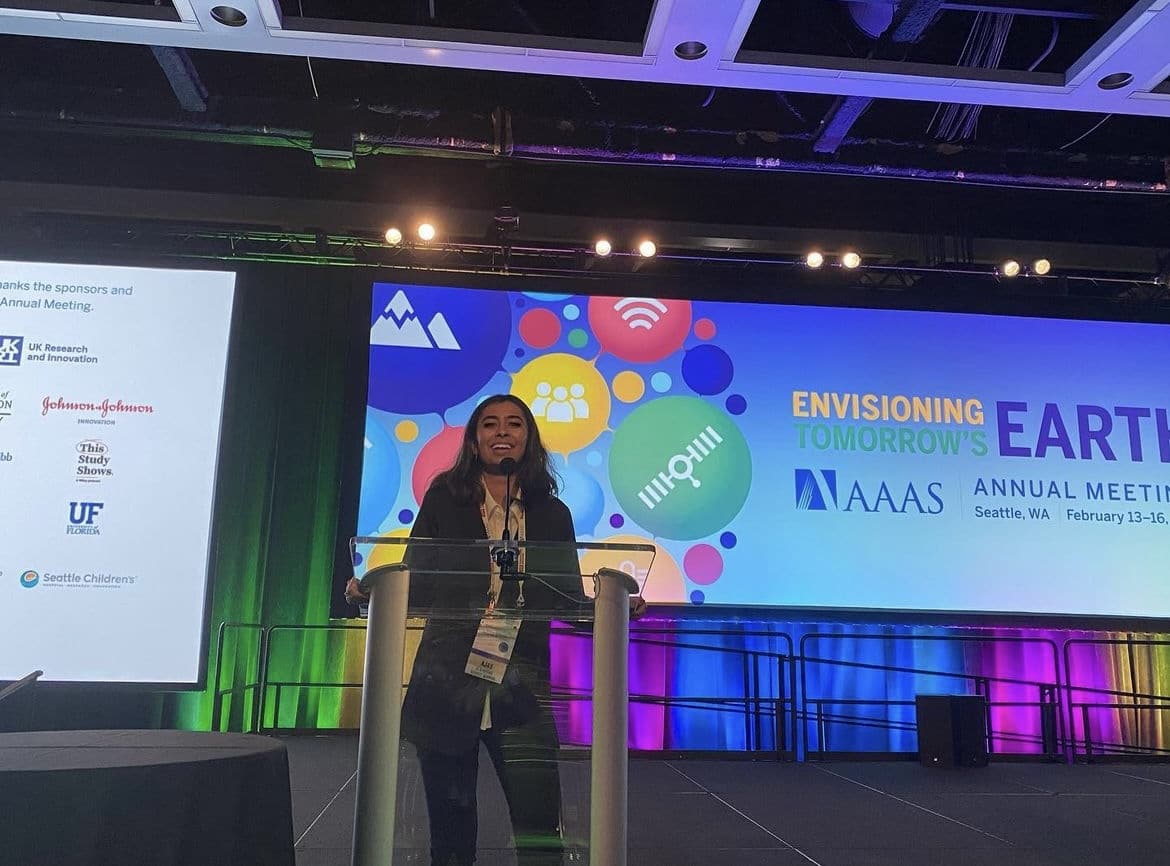
Sanskriti Deva, a junior in computer engineering, is staying busy this week as a featured speaker at the United Nations Association Global Engagement Summit and Harvard’s annual WECode Conference.
Deva’s story begins when she was a teenager at a high school that—like many—was underresourced and underfunded. She and her classmates didn’t have access to a library, much less have access to new and innovative technology. So, she decided to act. Because of her love for technology and awareness of its impact, Deva founded InventSTEM, a program that aims to help bridge the gap between underrepresented minorities and access to technology.
InventSTEM provides mentorships, internships, and worldwide leadership chapter opportunities and has reached over 10 countries outside of the United States.
“I always liked technology… I realized that innovation and technology aren’t as separate from activism and social justice as you might think,” she says.
Deva began to target legislation in her district that provided achievement-based funding to schools. She recognized that the lack of resources available to her fellow students greatly impacted these achievement results, and therefore led to less funding.
Through this activist work, Deva learned of the United Nations Association of United States of America (UNA-USA). The UNA-USA has a national council of over 30 people elected by region in the United States. These council members work on “issues of membership, legislative advocacy, web and social media, external communications, education, WFUNA, the Council of Organizations” and make recommendations to the UNA-USA staff and delegates.
Deva was one of the youngest elected council members, barely reaching the age requirement as the elections came on the heels of her 18th birthday. Now in her second term, Deva remains a council member in the South East Region of the UNA-USA National Council and is the Chair of the Global Engagement Summit. In this role, Deva leads council members in planning and executing the international conference. This year, the Global Engagement Summit will be held on February 17 and 18 at the United Nations headquarters in New York City.
The conference’s theme this year, Empowered and Emboldened for Impact, is meant to “highlight the need for members to feel empowered in order to let decision-makers within the U.S. government and the United Nations know they support bold action in order to see impact in terms of improving the fate of people, justice, and our planet.”
Not only has Deva played an imperative role in the planning and coordination of this summit, but she will also speak to the members in attendance, comprised of international diplomats, activists, and U.S. policymakers.
Deva brings a unique perspective to the UNA-USA as a computer engineering student. While it may seem unconventional to use her engineering background in the world of politics, Deva is proving the two intersect more than expected.
“Adding my voice to the national council, not only as one of the youngest people but also as an engineer, is really cool because most people aren’t from that background so they don’t know how to come up with those solutions,” says Deva. “I feel like a diversity of thought is what breeds innovation.”
Her research interests in the Department of Electrical and Computer Engineering at NC State have focused on quantum computing. Deva realizes “you can take two very different things like quantum computing and the UN and use that to facilitate innovation in both areas.”
Deva is learning that there are many sustainability-related capabilities in quantum computing. “Quantum computing promises to use less energy and power… you can put two bits of information onto one quantum bit,” Deva explains.
Deva notes that the field of quantum computing is very new, and you can make a lot of impact from a young age. And Harvard is already noticing that impact.
Harvard holds an annual WECode (Women Engineers Code) conference to gather a “global community of technical leaders aiming to foster a network among engineers, and promote greater representation in the technical industry by those who have been traditionally marginalized.” This year, they invited Deva to speak about her unique experiences as a young UNA-USA Council Member, quantum researcher, college student, and woman in STEM.
“[Being invited] was really surreal. I know I’m very young in my career… so it’s really surreal to be recognized for my work already, “ Deva says. “I’m really excited to showcase some of the things I’ve learned [and] hopefully inspire anyone who feels like an imposter in the things they’re doing because I sometimes feel like that too.”